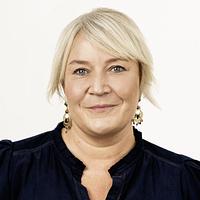Curiosity saved the cat
Your Royal Highness
Prize winners
Chairman of the board
Honored guests
Prize winners
Chairman of the board
Honored guests
Tonight, I would like to talk about curiosity.
Not long ago, during the Danish Science Festival, I had the pleasure of speaking at an event called Drughunters – an event hosted by Lundbeck.
Not long ago, during the Danish Science Festival, I had the pleasure of speaking at an event called Drughunters – an event hosted by Lundbeck.
On the day of the event, groups of high school students were invited to come up with innovative solutions to different brain diseases. And the end goal was to present these ideas in front of scientists working at Lundbeck.
And they did.
I was impressed by their ideas, their knowledge and their desire to help other people.
I was impressed by their ideas, their knowledge and their desire to help other people.
It takes quite a lot of courage to form and present complicated ideas in front of highly educated scientists – even more so when doing it while preparing for end of term exams.
But a curious mind can be hard to satisfy.
And I believe that the students share that mindset with a lot of you present here tonight.
Often times, curiosity can lead to something great.
Just like it did for you – Christine Holt, Erin Schuman and Michael Greenberg – the winners of this year’s Brain Prize.
You have each been nominated for your ground-breaking discoveries and your hard work.
Your research revolves around how the synthesis of new proteins are triggered in different parts of the neuron – and how that defines our brains' development over time.
My sincere congratulations to all of you!
The wonderful brain
You have dedicated your lives to studying the weird curly object that we all have inside our heads.
It consists of smaller parts with beautiful names such as: Thalamus, Cerebellum and Medulla Oblongata.
I sure hope I pronounced that right.
And even though it mostly looks like overcooked pasta left for too long in a colander, it contains our emotions, our sensory apparatus, our memories and the entirety of our being all at the same time.
I truly understand the fascination.
How can it be – that a bunch of neurons is what enables us to hear, to see and to smell?
How can my brain create this tingling in my stomach when I stand in front of a crowd?
Luckily for those with curious minds, a lot of mysteries remain unsolved when it comes to the brain.
The power of science
But – we don’t do research and scientific experiments just for the thrill of it.
We use science to understand the world around us, and our role in it.
It makes the unknown, known – and the known, useful.
But – we don’t do research and scientific experiments just for the thrill of it.
We use science to understand the world around us, and our role in it.
It makes the unknown, known – and the known, useful.
We use science and innovation to solve the challenges of our society.
Scientific research can lead to technological breakthroughs and help us through the green transition. It can save lives. And it can restore the zest for life in a troubled mind.
Science gives us footing in a time defined by uncertainty and subjective truths.
Your work ensures reason in the public debate – a key part of having a strong democracy.
We need more science. And we need more curious minds like yours – Erin, Christine and Michael.
World class life science
Denmark is renowned for our research environments. We have some of the best universities and excellent scientists. Not least within life and health sciences. And we have talented students.
As Minister for Higher Education and Science, I wish to ensure that Denmark continues to be a strong research nation with high ambitions as well as a favored destination for foreign scientists, investors and companies.
Life science is a priority for the Government, and we are currently working on the development of a new strategy for Danish life science.
An important aspect is access to highly specialized labor, which we need in order for many of our companies – like Lundbeck – to reach their full potential. But, also to continue the scientific and technological development that we already benefit from today.
We need to promote the important fields within STEM, in hope that more young people choose that path in their professional lives.
Also, the government wishes to retain more international students after they graduate. That way we can ensure that Danish companies can get those highly specialized skills which they need.
But most importantly I hope that we can stay intrigued by the world around us and the things that we don’t quite understand – yet.
World renowned psychologist Daniel Kahneman has said: “The brains of humans contain a mechanism that is designed to give priority to bad news.”
But even when the future seems gloomy – I believe knowledge and curiosity is the way forward. We must try to focus on the things we want to improve in the world.
Some say that curiosity killed the cat. I disagree.
If curiosity did anything to the cat, it was probably saving it.
If curiosity did anything to the cat, it was probably saving it.
So, let’s continue to celebrate science and the curiosity that drives it.
And let’s celebrate the three winners. Once again – congratulations.
And let’s celebrate the three winners. Once again – congratulations.
Your effort is much appreciated!
That also goes for the people at The Lundbeck Foundation – our hosts tonight – that continuously work to promote science.
Thank you very much for your time!
